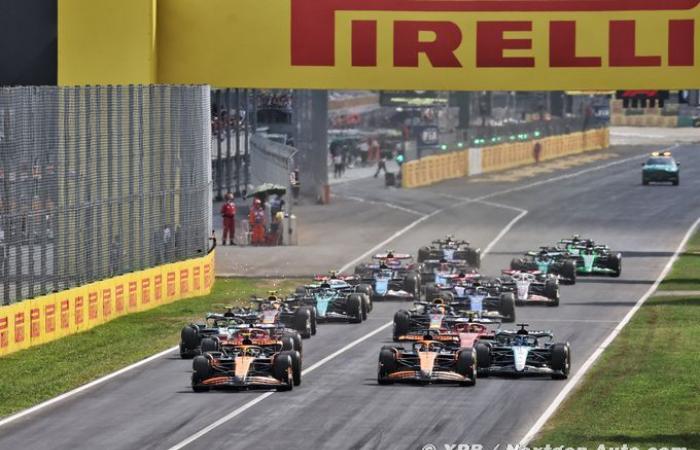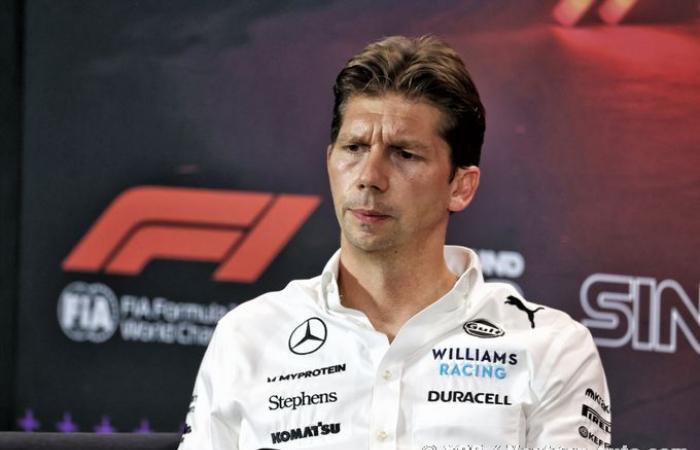This is a statistic that can be questioned. During the last 12 races, there have almost always been grid penalties (except on 3 occasions). Whether for engine penalties, penalties for driving errors, the grid of an F1, on Saturday, is rarely that of Sunday.
Shouldn’t we think about making a starting grid more readable or understandable for the viewer? Or is there no better solution?
Williams F1 boss James Vowles ponders this problem out loud…
“The last penalty I think was Lewis with an engine penalty. But before that I think one of the Alpine drivers [Ocon] had a different problem. It’s interesting, when you’re in such a tight battle at the back of the grid, and you start from the back of the grid… you’re actually rolling the dice to try a completely different set-up configuration, and that’s why they’re taking those penalties. They’re not doing it because they want to add technical components. I know Lewis did it, but that’s an exception, and it creates a very different dynamic in the race and more learning.”
“From that point of view, it makes the race a little bit more disrupted or eventful – more so than if the drivers lined up on the grid in the planned order. I don’t think that’s necessarily a bad thing. I think with the engine penalties, we’re not in a bad position now. With the four power units on the grid, you see cars that are quite close together and still want to hold on to their grid position. The midfield is so tight that if you’re at the back, you have to try something different.”
For Frédéric Vasseur, grid penalties are a strategic element developed by the teams at the beginning of the year. He also sees no urgency in changing the regulations.
“Every case is different, but if you look at it now, we are at the 17th race of the calendar, and I am not sure that many drivers have taken penalties just for comfort or for the sake of performance for the future. We are all on track to do the season with four engines. We may not get there, but it is the right limit. Now you have the decision to start from the pits for comfort or performance, etc. But I think it is marginal.”
“Over the whole season, we don’t have much to go on. Maybe it was more the coincidence of the track, because of the accidents. And so in each case, it’s very different. I think some incidents are due to crashes, others to engines. But we are on the limit. And no, it’s not a drama for me.”
Shouldn’t the introduction of capped budgets for V6s lead to the cancellation of grid penalties for changing parts on a power unit? After all, a team would already be financially penalized by exceeding the quota…
James Vowles sheds light on the issue…
“They’re two different things, in my opinion. So you’re right, the budget cap on the engine is a good thing. It’s more sustainable than it has been in the past. To be clear, their revenue stream is very minor, but it does help control spending on that front.”
“But I think in 2026… you want the engine manufacturers to continue to aim for a reliable engine. You can’t just throw engines on the grid because the teams that have them will always suffer in terms of expenditure. That’s what they’re looking for anyway. So, in my opinion, having penalties in place with a reasonable number of units for the year is actually the target that every team wants to achieve anyway.”
Frédéric Vasseur, who runs a team and is his own engine manufacturer, finally brings up a significant objection to the subject.
“I’m not sure I understand the question because the financial settlement is for the engine manufacturer and the penalty is for the team. For Mercedes, for example, or for us, it would be a financial settlement for Ferrari and a penalty for us. I’m not sure we can confuse that.”







